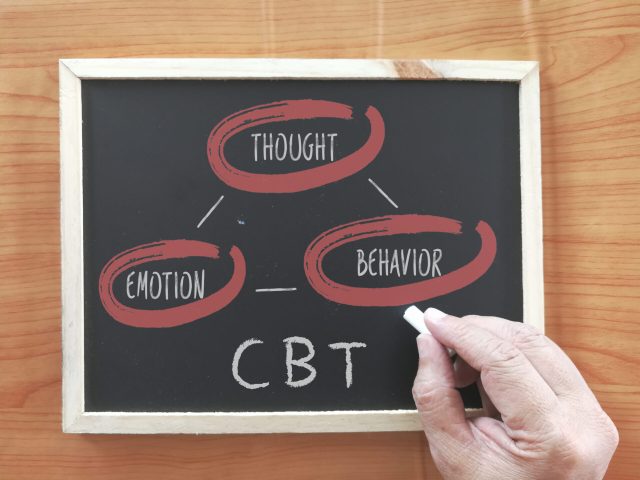Course summary
Practice Level: Intermediate
Cognitive behavioral therapy (CBT) for eating disorders is a treatment package of behavioral and cognitive strategies. This learning material focuses on patients who are not medically at-risk and who need a behaviorally-based psychotherapy to treat their eating disorder. Notably, determining if a client is medically at-risk is a medical decision and best practice would dictate that therapists, at a minimum, coordinate with the primary care practitioners to assess medical needs when eating disorders are present. Designed for social workers, psychologists, marriage and family therapists, and counselors this learning material discusses transdiagnostic treatment of eating disorders, provides clinical case examples, demonstrates a newer transdiagnostic protocol, and reviews cultural considerations.
The length of CBT treatment for eating disorders varies depending on client presentation. The latter portion of this learning material presents an abbreviated 10 session format of CBT for eating disorders for patients who are not underweight.
Course Format
This course contains downloadable online lessons (PDF) and a practice test. When you’re ready, purchase the course by clicking the “Add To Cart” or “Enroll” button. This will let you take the test, complete the course evaluation and receive your certificate for CE credits.
Learning Objectives
1. Differentiate the clinical presentations of eating disorder diagnoses.
2. Describe the transdiagnostic CBT model of eating disorders.
3. Describe the protocol for brief CBT for non-underweight patients with eating disorders.
4. Identify cultural factors that affect the treatment of eating disorders.
Course Syllabus
Introduction
Eating Disorder: Diagnostic Criteria and Clinical Case Examples
Transdiagnostic CBT for Eating Disorders: Broadly Applicable Themes and Interventions
Brief CBT for Non-Underweight Patients with Eating Disorders
Case Example: Brief CBT for Non-Underweight Patients with Eating Disorders
Cultural Considerations
Summary
Authors
Scott H Waltman, PsyD, ABPP
Scott H Waltman, PsyD, ABPP, is a clinician, international trainer, and practice-based researcher. His interests include evidence-based psychotherapy practice, training, and implementation in systems that provide care to underserved populations. He is certified as a qualified Cognitive Therapist and Trainer/Consultant by the Academy of Cognitive & Behavioral Therapies. He also is board certified in Behavioral and Cognitive Psychology from the American Board of Professional Psychology. He is a board member for the International Association of Cognitive Psychotherapy. More recently, Dr. Waltman, worked as a CBT trainer for one of Dr. Aaron Beck’s CBT implementation teams in the Philadelphia public mental health system. He is the first author of the book Socratic Questioning for Therapists and Counselors: Learn How to Think and Intervene like a Cognitive Behavior Therapist.
Accreditation Approval Statements
CE4Less.com is approved by the American Psychological Association to sponsor continuing education for psychologists. CE4Less.com maintains responsibility for this program and its content.
CE4Less.com, provider #1115, is approved as an ACE provider to offer social work continuing education by the Association of Social Work Boards (ASWB) Approved Continuing Education (ACE) program. Regulatory boards are the final authority on courses accepted for continuing education credit. ACE provider approval period: 08/08/21-08/08/24. Social workers completing this course receive 3 clinical continuing education credits.
CE4Less.com has been approved by NBCC as an Approved Continuing Education Provider, ACEP No. 6991. Programs that do not qualify for NBCC credit are clearly identified. CE4Less.com is solely responsible for all aspects of the programs.
Courses have been approved by CE4Less.com, as a NAADAC Approved Education Provider, for educational credits. NAADAC Provider #91345 CE4Less.com is responsible for all aspects of the programming.
We are committed to providing our learners with unbiased information. CE4Less never accepts commercial support and our authors have no significant financial or other conflicts of interest pertaining to the material.

